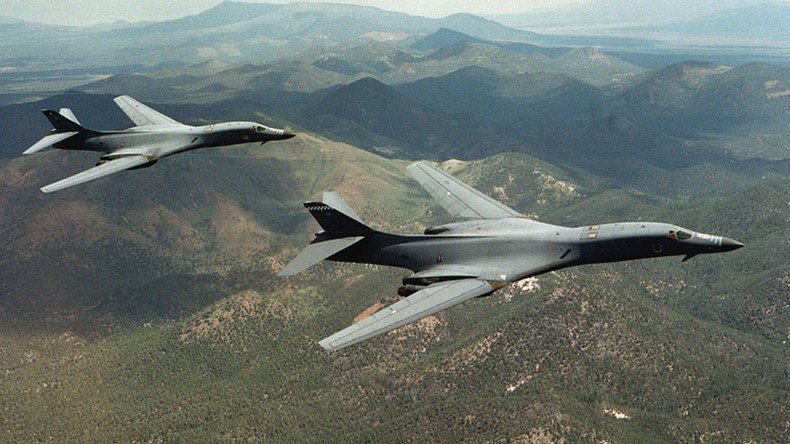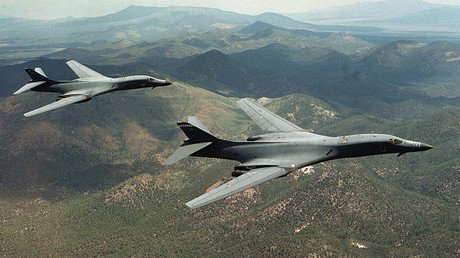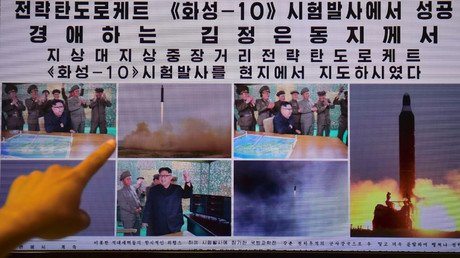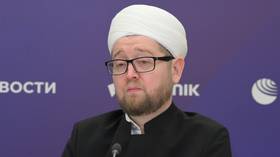2 US supersonic bombers fly over S. Korea in warning to Kim Jong-un

The US Air Force has flown two supersonic bombers over South Korea in a show of force towards North Korea. This is the second time in just over a week that the B-1B Lancer bombers have flown over the South’s airspace.
One of the aircraft landed at the Osan Airbase, which is around 40km south of the capital, Seoul, according to Reuters. The bombers are normally based at the Andersen Air Force Base in Guam.
The US Air Force confirmed that the flight on Wednesday was the closest ever to North Korea, while it was also the first time in two decades that a B-1B Lancer had landed on South Korean soil.
“Today marks the first time the airframe has landed on the Korean Peninsula in 20 years, as well as conducting the closest flight near North Korea ever,” the US Air Force stated on its website.
Lt. Gen. Thomas W. Bergeson said the deployment of the supersonic bombers was aimed at showing that the US is committed to defending its ally South Korea from North Korean aggression.
“What we are showing today is just one tool we have to choose from a wide array of options,” Bergeson said in a US Forces Korea statement, as cited by Stripes. “The alliance grows stronger every day, and we remain prepared to defend and to preserve the security of the Korean Peninsula and the region.”
The flyover by the B-1B Lancer bombers hours after North Korean state media reported that its leader, Kim Jong-un, had supervised a ground test of a new rocket engine, which will be used to launch satellites.
This latest show of strength from the US comes just over a week after it sent two B-1Bs to South Korea on September 13. The move came four days after the North claimed to have carried out its fifth nuclear test, which was condemned by the international community.
Moscow accused Pyongyang of threatening the security of the Korean Peninsula and the entire region through its policies, while Russia urged North Korea to re-join the Nuclear Proliferation Treaty.
“We are very concerned about the test. UN Security Council resolutions must be observed,” Russian Foreign Minister Sergey Lavrov said.
Meanwhile, US President Barack Obama labeled the test a “grave threat,” and called for new sanctions against Pyongyang
However, Pyongyang said the intended display of military might was no more than a “bluff” and a “laughing stock” for the whole world.
“[This] farce is no more than a bluff to free the puppet military of rapidly growing war phobia and war-weariness and fan up war hysteria,” Minju Joson, a state-run North Korean government newspaper reported.
Meanwhile, state news agency KCNA continued chiding the South for allowing the flyover to take place.
“These extremely reckless provocations of the US imperialist warmongers are pushing the situation on the Korean Peninsula to the point of explosion hour by hour,” the agency stated, noting that the South “had better stop their rash actions” as the North is perfectly capable of “beat[ing] back any aggression and provocation at a single blow.”
In July, Seoul announced it would be deploying advanced Terminal High Altitude Area Defense (THAAD) anti-missile systems from the US. South Korea and Washington say the defense mechanism is solely aimed at North Korea.
China slammed the move, with its Foreign Ministry saying, “The recent move by the South Korean side has harmed the foundation of mutual trust between the two countries.”
In August, Pyongyang accused Washington of preparing an invasion and threatened to retaliate with a “merciless and annihilating” nuclear strike on US forces if there is any sign of a military provocation.
The statement came just days after the US said it had deployed nuclear-capable strategic bombers on the island of Guam.














